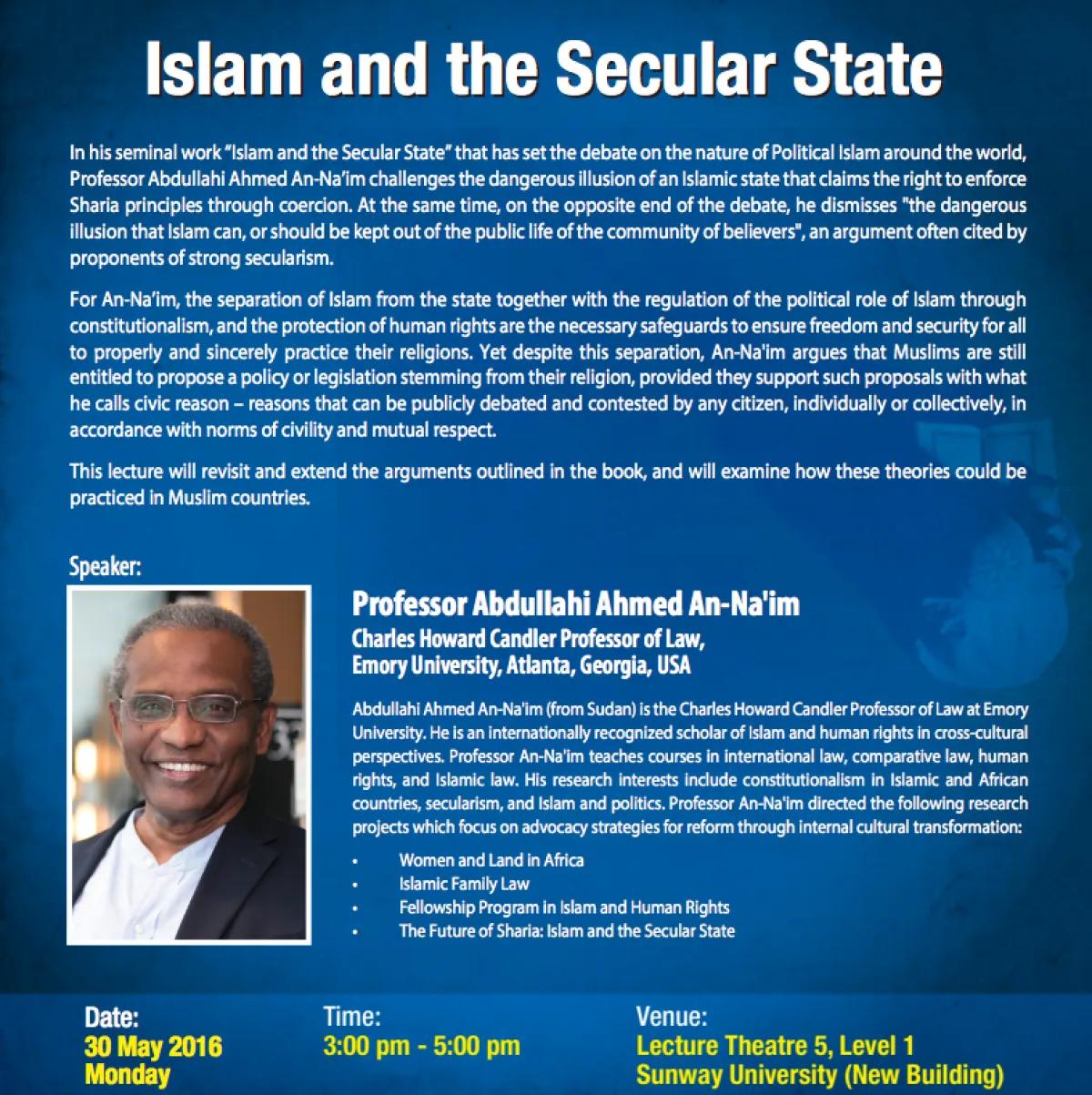Abstract
In his seminal work “Islam and the Secular State” that has set the debate on the nature of Political Islam around the world, Professor Abdullahi Ahmed An-Na’im challenges the dangerous illusion of an Islamic state that claims the right to enforce Sharia principles through coercion. At the same time, on the opposite end of the debate, he dismisses “the dangerous illusion that Islam can, or should be kept out of the public life of the community of believers”, an argument often cited by proponents of strong secularism. For An-Na’im, the separation of Islam from the state together with the regulation of the political role of Islam through constitutionalism, and the protection of human rights are the necessary safeguards to ensure freedom and security for all to properly and sincerely practice their religions. Yet despite this separation, An-Na’im argues that Muslims are still entitled to propose a policy or legislation stemming from their religion, provided they support such proposals with what he calls civic reason – reasons that can be publicly debated and contested by any citizen, individually or collectively, in accordance with norms of civility and mutual respect. This lecture will revisit and extend the arguments outlined in the book, and will examine how these theories could be practiced in Muslim countries.




